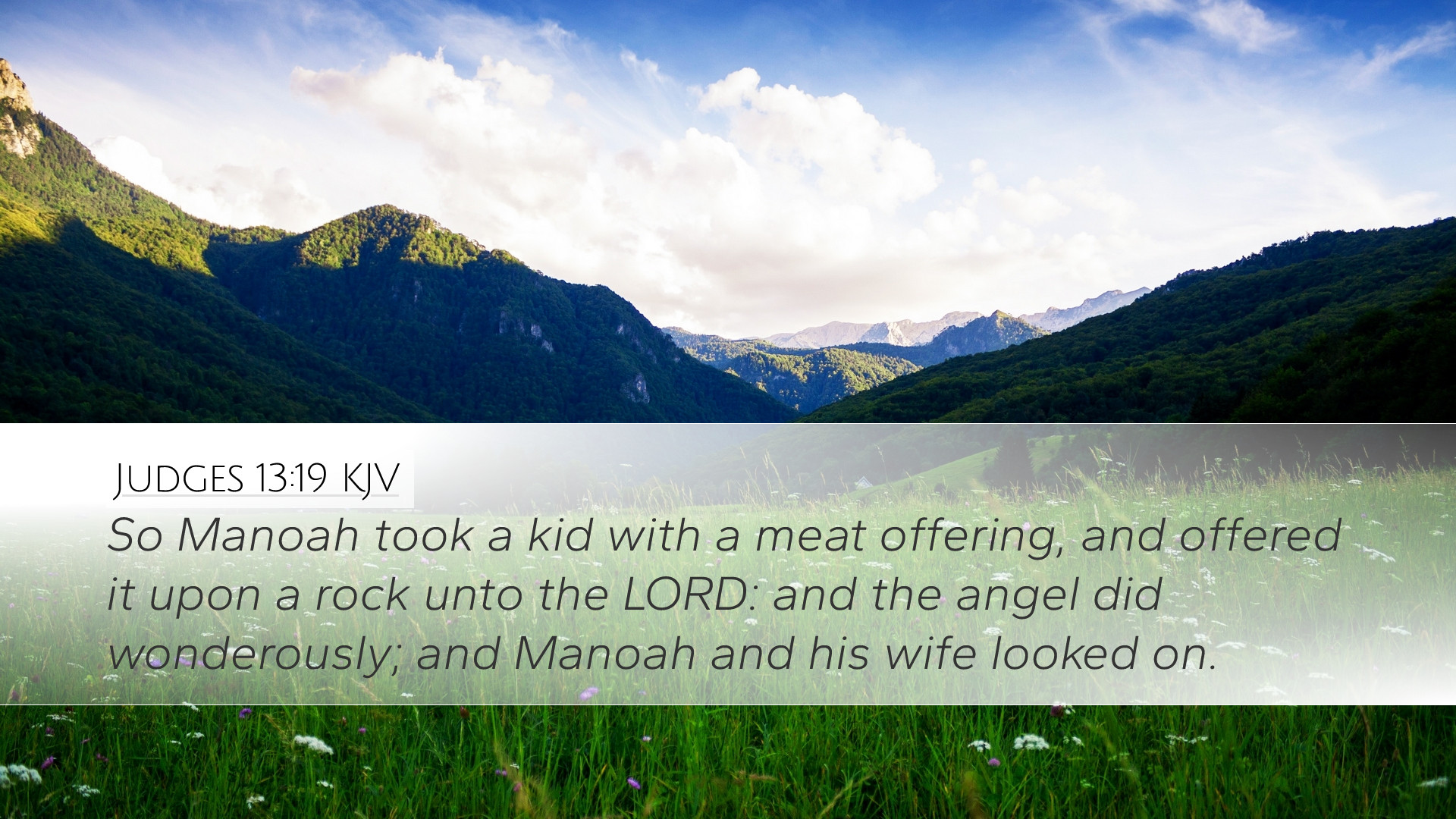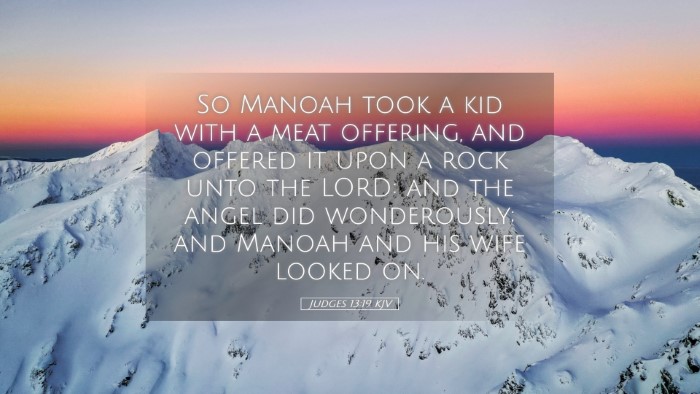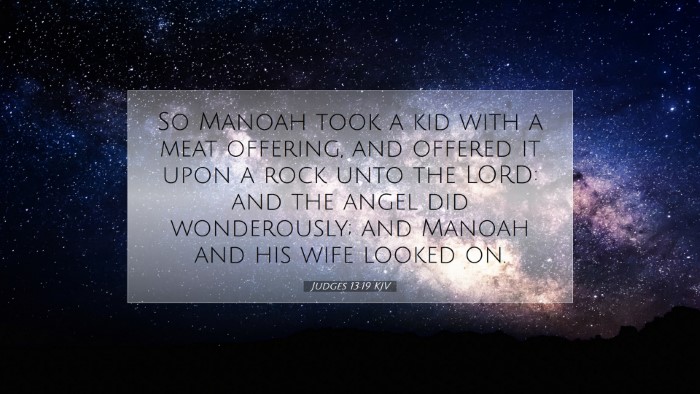Bible Commentary on Judges 13:19
Judges 13:19 states: "So Manoah took a kid with a meat offering, and offered it upon a rock unto the Lord: and the angel did wondrously; and Manoah and his wife looked on."
Introduction
This verse captures a significant moment in the narrative of the birth of Samson, emphasizing the reverence of Manoah and his wife towards God. Their actions illustrate the importance of worship and acknowledgment of divine encounters.
Contextual Background
The setting of Judges 13 is a time in Israel's history marked by oppression and a longing for deliverance. The Israelites faced frequent dangers from the Philistines, and God’s promise of a deliverer brings hope amid despair. Manoah, a Danite, receives a divine message about his son, who will be dedicated to God as a Nazarite.
Significance of Offering
Manoah’s decision to offer a kid and a meat offering signifies several key elements:
- Covenant Relationship: The offering indicates a relationship of covenant fidelity between Manoah's family and God, recognizing His sovereignty.
- Gratitude: The act of offering is viewed as an expression of gratitude, acknowledging God’s revelation.
- Preparation for Divine Interaction: The sacrifice prepares both Manoah and his wife spiritually for the divine encounter that follows.
The Revelation of the Angel
In this verse, the phrase "the angel did wondrously" points to miraculous actions that follow the offering. According to Matthew Henry, this indicates the angel's glorious manifestation of God's power, reminding us of the significance of divine presence amidst human offerings.
Insights from Public Domain Commentaries
- Adam Clarke: Clarke emphasizes that the angel's wondrous acts highlight the extraordinary nature of God’s communication with humanity. He notes that Manoah's encounter was not an isolated incident but part of God’s grand plan to redeem Israel.
- Albert Barnes: Barnes points out that the observance of miraculous signs confirms God’s providence. Nowhere is this more visible than in God’s interaction with Manoah and his wife, where obedience to divine instruction is rewarded with revelation.
Manoah's Reaction and Theological Implications
Manoah and his wife witness the “wondrous” acts and are left in awe. Their response to divine revelation teaches valuable lessons for contemporary believers:
- Worship and Reverence: Like Manoah, believers today are called to respond to God’s presence with reverence. The act of worship is a means of acknowledging God’s sovereignty and power.
- Faith and Obedience: Manoah’s actions exemplify faith in God’s promises. His willingness to offer sacrifices illustrates a posture of trust—trust that the divine message would manifest in their lives.
- Understanding of Mystery: The narrative portrays the complexities of divine interaction. Manoah's bewilderment mirrors the human struggle to comprehend divine mysteries.
Conclusion
Judges 13:19 captures a pivotal moment in Scripture where human effort in worship aligns with God’s miraculous work. For pastors, theologians, and students of the Bible, this verse serves as a reminder of the relationship between faithful obedience, sacred rituals, and divine revelation.
As one reflects on this passage, the implications extend beyond history into the present, encouraging believers to approach God with reverence and an expectation of His work in their lives. The heartfelt worship of Manoah and his wife sets a powerful example for all who seek to honor and engage with the living God.


